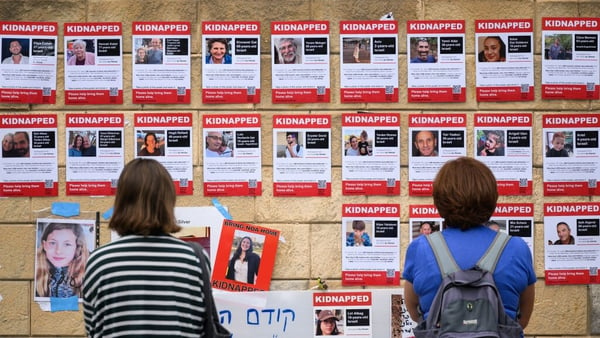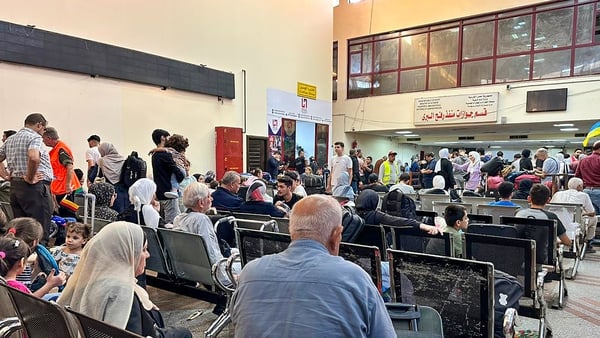Israel's war cabinet has agreed to allow fuel into Gaza in order to keep the sewage system operable and prevent the spread of disease.
National Security Advisor Tzachi Hanegbi said the action was taken following what he termed "a special request" from the United States.
Under the deal, Israel will provide two tankers a day for the sewage system in Gaza, which is on the verge of collapse without power.
He said: "The decision was that we want to prevent the spread of diseases. We don't currently need epidemics that will harm civilians there or our soldiers."
Mr Tzachi added: "If there is an epidemic, the fighting will be stopped. If there is a humanitarian crisis and an international outcry, we will not be able to continue the fighting under those conditions."
UN warns of 'starvation' in Gaza
UN aid deliveries to Gaza have been suspended again due to shortages of fuel and a communications shutdown deepening the misery of thousands of hungry and homeless Palestinians as Israeli troops battled Hamas militants in the enclave.
The United Nations' World Food Programme (WFP) said civilians faced the "immediate possibility of starvation" due to the lack of food supplies.
Palestinian news agency WAFA said a number of Palestinians were killed and others injured in an Israeli strike that hit a group of displaced people near the Rafah border crossing between Gaza and Egypt - the transit point for aid.
Al Jazeera TV cited sources as saying that nine people were killed in the strike. There was no immediate comment from Israel on the reported strike and Reuters could not verify it.
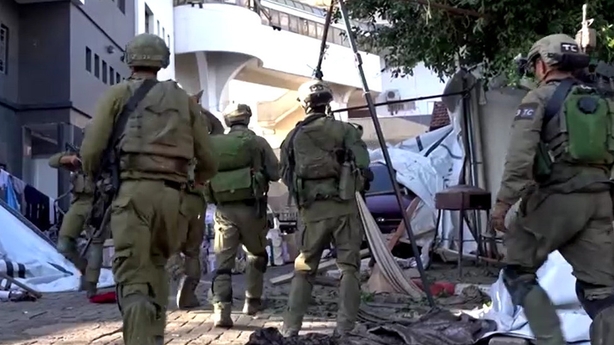
In other developments, Israel said its troops had found a tunnel shaft used by Hamas at Al Shifa hospital in the north of Gaza.
The hospital, packed with patients and displaced people and struggling to keep operating, has been a major focus of global concern this week.
Israel says Hamas has stored weapons and ammunition and is holding hostages in a network of tunnels under hospitals like Al Shifa, using patients and people taking shelter there as human shields. Hamas denies this.
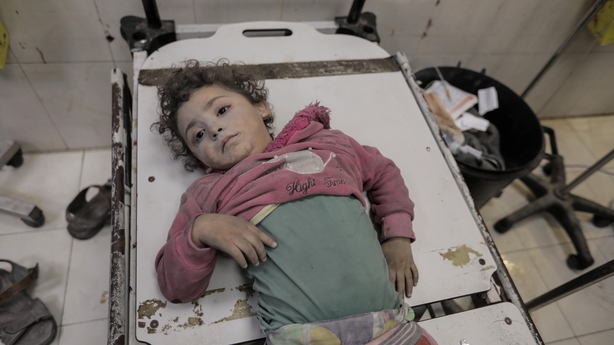
With the war about to enter its seventh week, there is no sign of any let-up despite international calls for a ceasefire or at least for humanitarian pauses.
The conflict was triggered by a cross-border raid by Hamas militants on 7 October that killed about 1,200 Israelis, mostly civilians, in the deadliest day in the state's 75-year history.
More than 11,500 Palestinians, at least 4,700 of them children, have now been killed in Israel's retaliatory military assault on Hamas-ruled Gaza, according to the Palestinian Health Ministry - a toll that far surpasses previous bouts of conflict in recent years.
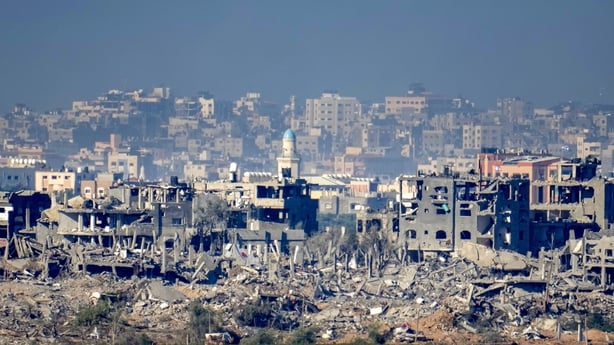
Israel has vowed to wipe out the militant group. Whole neighbourhoods of Gaza have been flattened in air and artillery strikes, hundreds of thousands of people have been forced to flee their homes, and the humanitarian situation is catastrophic, aid agencies say.
The United Nations said there would be no cross-border aid operation today due to fuel shortages and a communication shutdown. For a second consecutive day yesterday no aid trucks arrived in Gaza due to lack of fuel for distributing relief.
Today, an official said Israel's war cabinet approved letting in two fuel trucks a day into Gaza to help meet UN needs.
The official, who declined to be identified, said the decision came after a request from Washington.
Allowing in the fuel, the official said, gives Israel extra room to maneuver in the international arena so it can continue its campaign to "eradicate Hamas" in Gaza.
The amount of fuel will give "minimal" support for water, sewage and sanitary systems in Gaza to prevent pandemics, the official said.
WFP Executive Director Cindy McCain said nearly the entire population was in desperate need of food assistance.
"Supplies of food and water are practically non-existent in Gaza and only a fraction of what is needed is arriving through the borders," she said in a statement.
"With winter fast approaching, unsafe and overcrowded shelters, and the lack of clean water, civilians are facing the immediate possibility of starvation," McCain said.
The Israeli military's chief of staff said Israel was close to destroying Hamas' military system in northern Gaza and there were signs the army was taking its campaign to other parts of the coastal enclave of 2.3 million people.
Israel accused Hamas of preventing people from heading to the south of Gaza, which the militant group denied.
The army released a video it said showed a tunnel entrance in an outdoor area of Al Shifa, Gaza's biggest hospital.
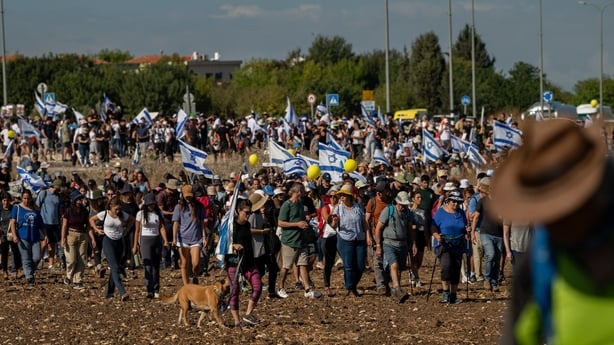
The video, which Reuters could not immediately verify, showed a deep hole in the ground, littered with and surrounded by concrete and wood rubble and sand. It appeared the area had been excavated. A bulldozer appeared in the background.
The army said its troops also found a vehicle in the hospital containing a large number of weapons.
Reuters journalists have been unable to reach anyone inside Al Shifa hospital for more than 24 hours.
Hamas said on Thursday that claims by the United States that the group uses the hospital for military purposes was "a repetition of a blatantly false narrative, demonstrated by the weak and ridiculous performances of the occupation army spokesman".
Israeli officials had said Hamas held some of the 240 hostages taken by gunmen on 7 October in the hospital complex.
The Israeli military has said soldiers retrieved the body of a female soldier who had been held captive, in a building near Al Shifa.
The military had confirmed her death on Tuesday after Hamas issued a video of her alive followed by images of what it said was her body after she was killed in an Israeli strike.
On Thursday, troops recovered the body of another woman hostage, also in a building near Al Shifa.
In the West Bank, Hamas's Al-Quds Brigades said they had engaged Israeli forces for several hours in the city of Jenin overnight, unleashing a "torrent of fire" and laying ambushes with explosives.
Israel's military said that war planes struck militants in Jenin who had opened fire on Israeli soldiers. It said at least five of the militants were killed.
At least 178 Palestinians have been killed in the West Bank since the 7 October Hamas attack on Israel. The violence there has underscored fears that the territory, seized by Israel in the 1967 Middle East War, could spiral out of control in tandem with the conflict in Gaza.
Read more:
Latest Middle East stories


